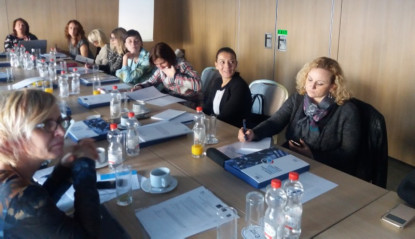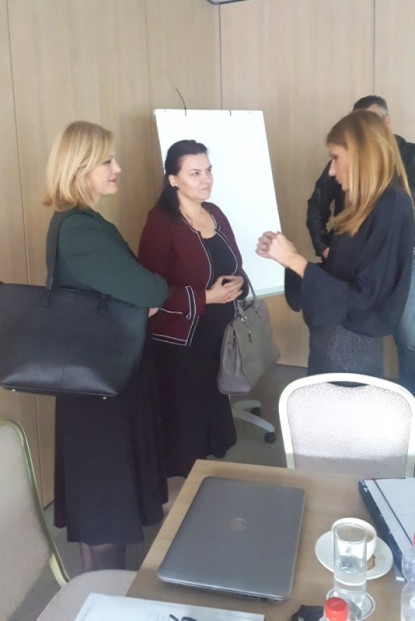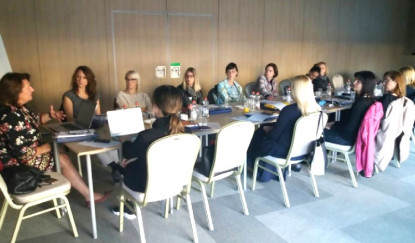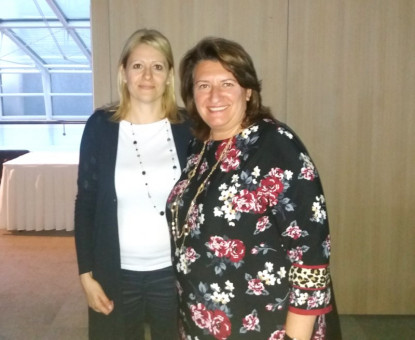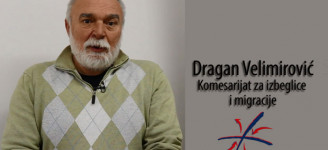The workshop ”Implementation of European Court of Human Rights’ standards in the field of Asylum“ has exceeded attendees’ expectations
On 13 November, 2018 the workshop „Implementation of European Court of Human Rights’ standards in the field of Asylum“ was held at the Zira hotel in Belgrade, within the second stage of the project ”Support to Strengthening Migration and Asylum Management in Serbia“, implemented by the International Organization for Migrations (IOM) with the support of the British Embassy in Belgrade, aiming at presenting novelties introduced in the asylum system of the Republic of Serbia and its implementing challenges.
One of the goals of this gathering was to bring standards and work principles of the European Court of Human Rights closer to the competent authorities which are going to deal with the implementation of the new laws, and the best way to achieve it was, as concluded, in the direct contact, through workshops and roundtables.
Judging by the impressions of the participants, members of the Asylum Office, Asylum Commission and judges of the Administrative Court-both workshops were more than successful thanks to the great speaker, Mirjana Lazarova Trajkovska, a former judge of the European Court of Human Rights in Strasbourg and a member of the Venice Commission.
The judge Lazarova Trajkovska explained that the European Court of Human Rights works according to the case law, which includes setting the rulings which are the guides in court practice and later relied on when making decisions. She explained that although local judges and administrators are not familiar with that, it is important that they understand and adopt standards through practical examples and main judgments.
”You may know entire Convention on Human Rights by heart, including all protocols, but you are not going to know the law, standards and principles of the European court if you don’t know the practice of the European Court of Human Rights. It does not mean that you need to know all rulings concerning asylum, but rulings related to Serbia and rulings presenting main pillars i.e. rulings referring to general standards that countries should use to build their practice on.“, explained Mirjana Lazarova Trajkovska.
She added that European Court of Human Rights does not impose on any country how to regulate its own legal or administrative system, but expects from each country to ensure minimum protection required by the European Convention on Human Rights.
“The same goes for the cases concerning the asylum. It is important for national courts and European court of Human Rights to state the reasons why somebody is denied the right of asylum, as a well-reasoned decision is important primarily for protection of reputation of administrative and judicial authorities “, explained Mirjana Lazarova Trajkovski who made for the workshop attendees a compilation of cases and rulings from the court practice important for Serbia and translated into Serbian, so that all who work on such proceedings may understand them.
“Serbia, like Greece or Macedonia or Hungary, is a transit country, which makes it important for employees of all institutions to learn about the topic of the reasoned judgment in the decision made by the administrative body. First instance body and first instance courts can determine the factual status in the best possible way and to apply standards and principles. The better they do their part of job, the better they explain their decision/judgment, the less work will remain for the second instance national courts, even for the European Court of Human Rights. It means that first instance rulings should rely more on the relevant international law in the field of asylum and that the first instance proceeding should be lead in such a way that it meets all requirements of Article 13 of the European Convention of Human Rights and in particular it has to be accessible to all asylum seekers in Serbia and to be efficient and timely“, said Lazarova Trajkovski.
According to her, statement of reasons of the first instance ruling must be clear, precise and contain all elements based on which the authority passed the decision. For every deviation from earlier practice, it is necessary to explain hy practice changed in that specific case. This is to ensure consistency, or uniformity of practice, considering that uniform court practice contributes to legal security and the respect of human rights and is therefore to be ensured.
Both workshops were attended by 11 employees of Asylum Office, 4 members of Asylum Commission and tree judges of the Administrative Court. They thanked the presenter and stressed significance of the topics discussed at the workshop.






